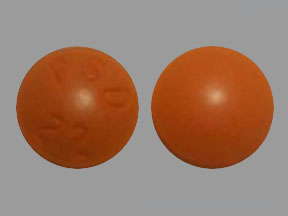
Senna-s Coupons & Savings Card – Discount Prices from $10.57
Brand for: Sennosides-docusate
This product is used to treat constipation. It contains 2 medications: sennosides and docusate. Sennosides are known as stimulant laxatives. They work by keeping water in the intestines, which helps to cause movement of the intestines. Docusate is known as a stool softener. It helps increase the amount of water in the stool, making it softer and easier to pass.
Our Senna-s coupons are free to use. You can print the coupon, email it to yourself, or receive the Senna-s coupon via text message. To get your free discount, show the pharmacist your Senna-s savings card which has the discounted coupon price. Use our filters below to edit the prescription box to match your needs. The Senna-s prices will update based on your prescription needs. Above our Senna-s coupons, you can change the location to see pharmacy prices in other areas. Our prescription discount card will update online with the specific pharmacy costs associated with your edits. Be sure to text, email, or print the Senna-s savings card code that you need after editing the prescription box and location field. Show the discount card to your pharmacist before paying.
My prescription
Edit
8.6-50MG, Sennosides-docusate (60 Tablets)
Select pharmacy

Walgreens
$10.57
COUPON PRICE
Albertsons
$16.91
COUPON PRICESenna-s savings card
Show this card to your pharmacist
Walgreens
$10.57
BIN
ID
PCN
GRP
019876
LH4512DC8A
CHIPPO
LHX
Powered by
This product is used to treat constipation. It contains 2 medications: sennosides and docusate. Sennosides are known as stimulant laxatives. They work by keeping water in the intestines, which helps to cause movement of the intestines. Docusate is known as a stool softener. It helps increase the amount of water in the stool, making it softer and easier to pass.
Our Senna-s coupons are free to use. You can print the coupon, email it to yourself, or receive the Senna-s coupon via text message. To get your free discount, show the pharmacist your Senna-s savings card which has the discounted coupon price. Use our filters below to edit the prescription box to match your needs. The Senna-s prices will update based on your prescription needs. Above our Senna-s coupons, you can change the location to see pharmacy prices in other areas. Our prescription discount card will update online with the specific pharmacy costs associated with your edits. Be sure to text, email, or print the Senna-s savings card code that you need after editing the prescription box and location field. Show the discount card to your pharmacist before paying.
Senna-s FAQs
Using the SaveHealth discount card, what is the price of Senna-s without insurance?
Using the SaveHealth discount card, the price of Senna-s without insurance is $10.57.
What is the price of Senna-s at Walgreens?
The price of Senna-s at Walgreens is $10.57.
